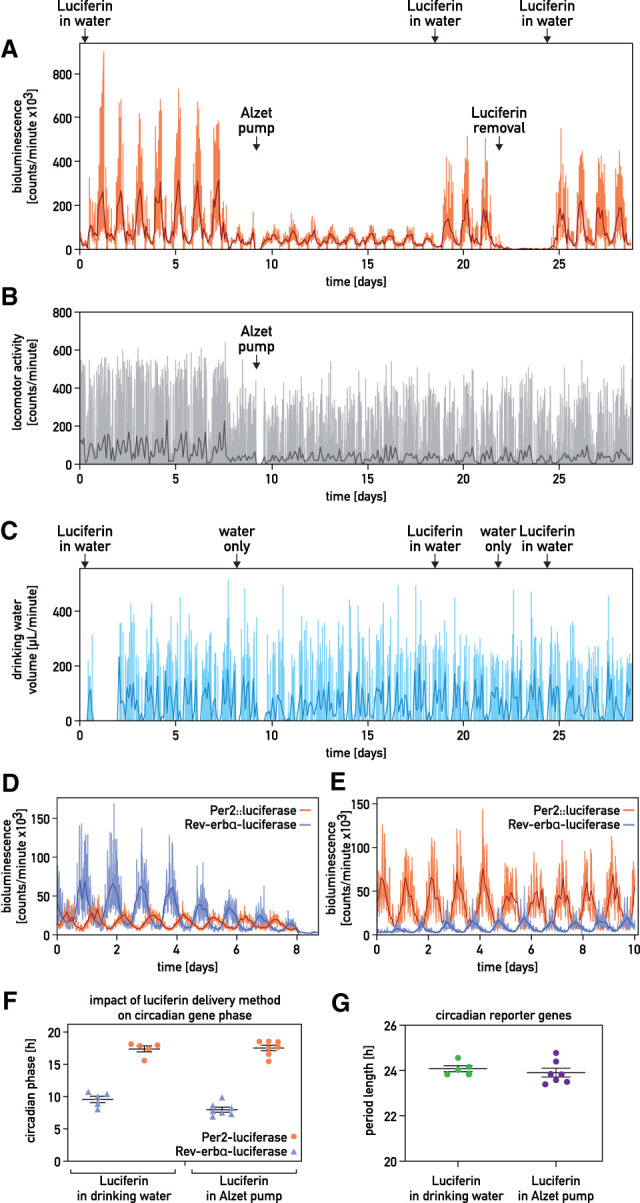Figure 1.

Long-term recording of circadian whole-body bioluminescence. (A–C) Whole-body recording of a hairless Per2::luc mouse entrained by a skeleton photoperiod. Luciferin was delivered as indicated. (A) Bioluminescence. (B) Spontaneous locomotor activity. (C) Drinking activity. (Orange, gray, and light blue lines in A–C) Raw data (1-min photon counts, 1-min activity counts, and 1-min water consumption, respectively), (darker lines in A–C) 120-min time-binned traces. (D,E) Whole-body Per2::luciferase and hepatic Rev-erbα-luciferase recordings from two different animals kept in constant darkness and receiving luciferin through Alzet pumps (D) or with the drinking water (E). (Light lines) Raw data, (darker lines) 120-min time-binned traces. (F,G) Relationship between the phases (F) and the period lengths (G) of Per2::luciferase and hepatic Rev-erbα-luciferase expression of mice receiving luciferin in the drinking water (n = 5) or by an Alzet micro-osmotic pumps (n = 7). Mice were kept in constant darkness.
